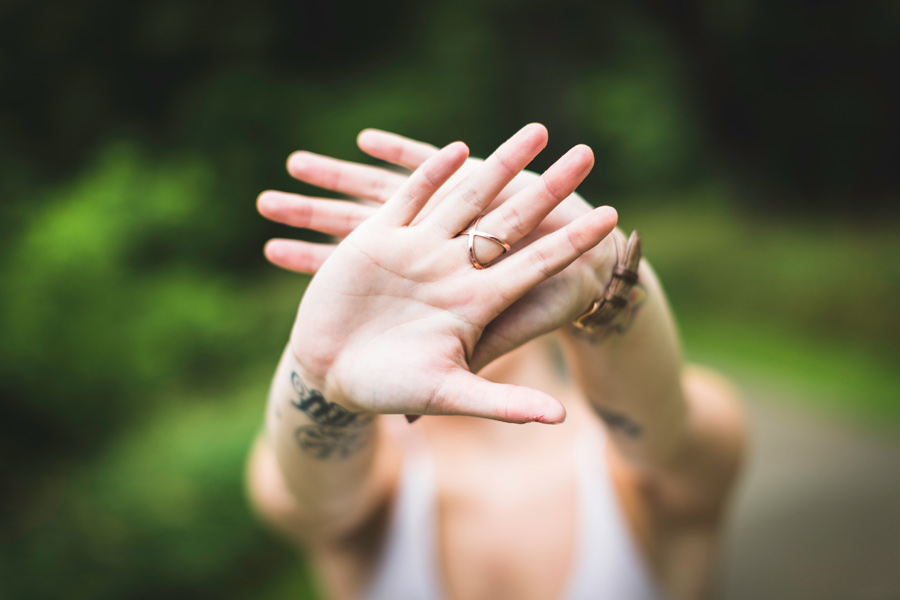Last week, Gold Coast woman Tara Brown contacted local police for advice about her relationship breakdown. Six days later, she was dead. The circumstances are horrifying.
On the same morning, not far away in Helensvale, another woman was shot dead in a fast food restaurant.
Explore our collection of award-winning planners and journals that encourage leadership, goal-kicking, passion and motivation, with elegant designs that can be personalised.
And on the same day, just a short drive up the M1 in Wacol, a woman was hospitalised under circumstances eerily similar to Tara’s.
Three women brutally attacked in two days. Two paid the ultimate price. In all three cases, their attackers were allegedly the women’s former partners.
62 women (as of 10 September 2015) are dead in Australia this year at the hands of their former partners. This year, an average of two women a week have been murdered.
It is now time to get people in positions of authority to actually do something about domestic violence. We encourage women not to stay in abusive relationships, but where can they go? Where can they hide? Why should they hide? Why are they paying for their choice to leave – with their lives?
Women’s voices need to be heard. We’re shouting from the grassroots, but without representatives in positions of power such as the legislature assemblies and judiciary, it’s a muffle. Without those in a position to help, our voices are white noise.
Change can happen when our community leaders have the courage – and also when they are forced to act. After the death of her mother by suicide, a 14 year old girl wrote to the New South Wales government and asked them to “educate children about domestic violence and how to seek help”. In her letters to politicians and her petition on change.org, she explained how she had no idea that being bashed by her father, and seeing him beat her mother, was not the norm for everyone else. And in doing so, she instigated a major change in the secondary school syllabus that will focus on domestic violence prevention.
When you share posts about domestic violence on social media, pledge to do more than merely being a social media activist.
Write to your State Member of Parliament. Write to your Federal Member of Parliament. Ask them what they are doing to support an end to domestic violence. When you share posts about domestic violence on social media, pledge to do more than merely being a social media activist. Don’t just click that “Like” or retweet that tweet, do something about it. Support foundations such as White Ribbon and Our Watch. Be active, rather than passive.
Discover our Make Your Mark planners and journals to help you create daily life habits to grow as a leader.
Both women and men can challenge attitudes and beliefs that promote a culture of violence and victim-blaming or shaming. Speak up! Hold the abusive person, not the victims, accountable for the abusive behaviour.
We as a society need to stop passively encouraging this violence against women. Many of us brush these incidents aside. We consider relationship violence as none of our business because it happens in private, or we think that there’s nothing we can do to help. But by our silence and inaction, we are allowing this violence to thrive. We need to be accountable.
But by our silence and inaction, we are allowing this violence to thrive. We need to be accountable.
Where are the male champions of change in the domestic violence arena? Just as women need men advocating for gender equity in the workplace, we need men to invite men to reflect on abusive and controlling behaviours. We need to focus on respectful relationships. We need to actively teach our sons and daughters how a respectful relationship works. Our Watch is working with secondary schools is Victoria to support and teach teenagers skills in building respectful and healthy relationships, but how can you reinforce that in your own home?
Men – call out that friend who catcalls women. Make it clear that even small abuses of respect are not acceptable. Let them know you think it’s wrong without getting aggressive or confrontational about it.
Men – call out that friend who catcalls women. Make it clear that even small abuses of respect are not acceptable.
Every single one of us can act if someone we know behaves in a controlling manner towards their partner. You know the warning signs – checking up on her all the time, criticising how she dresses, monitoring her friendships. Being jealous and controlling are not signs of love, but violence.
Domestic violence knows no social barrier. Women are not chattels, to be bent to your will by any means necessary. We’re your mothers, sisters, daughters, nieces, wives, partners, aunts. We’re your equals. What will you do about it?
If you or someone you know is suffering from sexual or domestic abuse, call 1800 RESPECT any time of day or night.
If you or someone you know is causing domestic abuse, call The Men’s Referral Service 1300 766 491




Mad Mumzie
As a fellow Queenslander I agree that this week has been horrendous! The sad thing is this seems to be happening more and more, not less. I agree that we all, as a society, men and women need to speak up and hold each other accountable when we see the signs…especially in our mates. It’s like calling someone out on racism, we must also do it on domestic violence, and the attitudes that breed this behaviour. Kids growing up thinking it is “normal.” If their parent’s friends are seen to be having a word or two in Dad’s ear and trying to help Mum, the kids will hopefully learn differently. Of course the roles can also be reversed with some men being victims. As a fellow blogger I will definately be more aware of not just liking and sharing, but also putting my two bobs worth out there, hence this comment. I work with lots of men in the mining industry and have seen changes occur in the way they are around women, but there is also still a long way to go yet! Thanks for writing this Yolanda. Great piece.